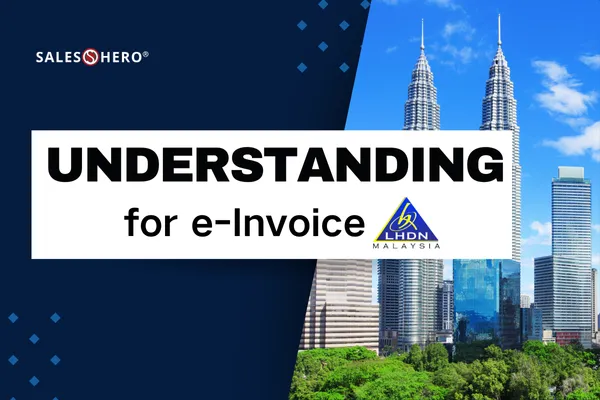
Understanding E-Invoicing in Malaysia: A Complete Guide
Introduction:
E-invoicing is rapidly becoming a standard practice for businesses worldwide, and Malaysia is no exception. With the introduction of the MyInvois portal and mandatory e-invoicing regulations set to take effect in August 2024, it's crucial for Malaysian businesses to understand and comply with these new requirements.
What is E-Invoicing?
E-invoicing, or electronic invoicing, is the digital exchange of invoice documents between a supplier and a buyer. This process eliminates the need for paper invoices, reducing manual errors and streamlining financial operations. In Malaysia, e-invoices must be submitted in XML or JSON format and validated through the MyInvois portal (Sovos).
Benefits of E-Invoicing
Efficiency: E-invoicing reduces the time spent on manual data entry and processing, allowing businesses to focus on core activities.
Compliance: Adhering to e-invoicing regulations ensures that businesses meet the Malaysian Inland Revenue Board (IRBM) requirements, avoiding potential penalties (Kiizen IT Consulting Sdn Bhd) (Sovos).
Cost Savings: By eliminating paper-based processes, businesses can save on printing, postage, and storage costs.
Accuracy: E-invoicing reduces human errors, ensuring that invoices are accurate and complete before submission.
Real-Time Tracking: Businesses can track invoices in real-time, providing better visibility and control over financial transactions.
How to Implement E-Invoicing
Assess Your Current System: Conduct a gap analysis to determine what changes are needed to comply with e-invoicing regulations (BoardRoom).
Choose the Right Model: Depending on the volume of transactions, businesses can either use the MyInvois portal or integrate through APIs.
Train Your Staff: Ensure your team is well-trained on the new e-invoicing processes and systems.
Monitor and Adjust: Continuously monitor the e-invoicing process and make necessary adjustments to improve efficiency and compliance.
Conclusion
E-invoicing is not just a regulatory requirement but also a strategic advantage for businesses in Malaysia. By understanding and implementing e-invoicing, companies can improve their operational efficiency, ensure compliance, and save costs. Start your e-invoicing journey today and stay ahead in the digital economy.

